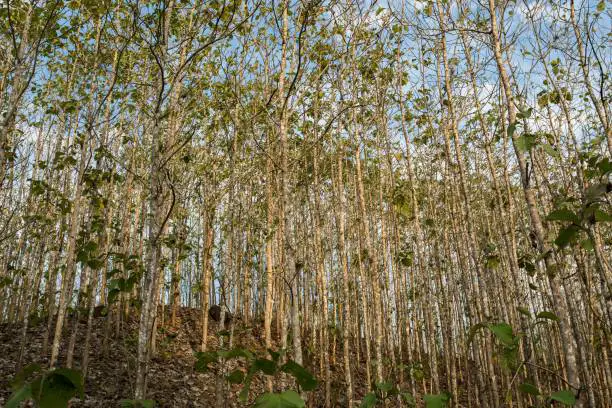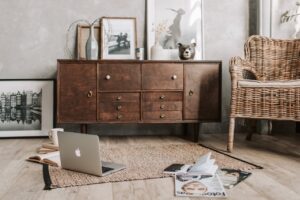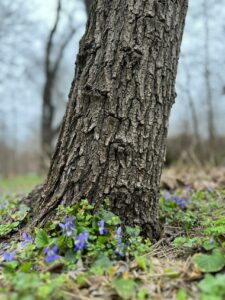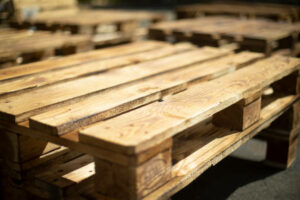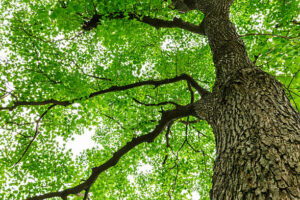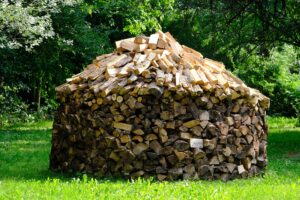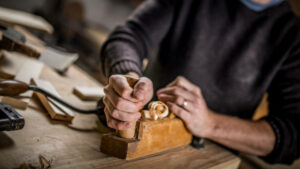There are several teak alternatives that will still look and feel like real wood but are environmentally friendly, cost-effective, and sustainable. These include synthetic ‘teak-style’ products such as Flexiteek and Esthec. Another option is shorea, which is similar to teak in heft and hardness and has a tight grain. It is cheaper than the Teak alternative and is sourced from managed forests.
Iroko
Iroko is a dense hardwood species that resembles teak in both color and durability. It grows in West Africa and is often referred to as “African teak,” although it is not botanically related to true Teak (Tectona grandis). Iroko also has some similarities to Greenheart, another hardwood that resembles teak, but that is not a genuine substitute for it. Iroko is a good choice for docks, ship hulls, and other marine applications, but it can also be used for furniture and interior millwork.
Like teak, iroko is highly durable and has excellent natural resistance to outdoor conditions. It is not affected by moisture or rot, and it will remain strong even when left untreated. Its beautiful golden brown hues and rock-hard density make it an attractive option for woodworking and construction projects. However, iroko can cause some health problems in sensitive individuals, including dermatitis and respiratory irritation.
The iroko tree grows to heights of up to 150 feet and has huge trunks that can measure seven feet in diameter. Iroko is a popular timber in the tropics of West Africa, where it can be found in countries such as Ghana, Guinea, and Angola. It is often referred to as poor man’s Teak wood because it has similar properties and is less expensive than teak.
Iroko is a tough and weather-resistant wood that is easy to work with, but it can be difficult to cut and finish. It is a very durable wood, and it is naturally resistant to both rot and insects. Its dense nature makes it ideal for decking and boat building, and it is also used in domestic furniture and flooring.
Other types of tropical hardwoods, such as supra, angelin, and para-angelim, are suitable for heavy construction and other uses that require high strength and durability. They have good resistance to rot and insects, and they do not rust when in contact with metal. They are also good for use in docks, shipbuilding, bridges, and piers. In addition, these woods are good for planking and can be made into parquet blocks covering boards and strips.
Afrormosia
Afrormosia is a wood that closely resembles teak, making it popular for its ability to replace it in boat building. It is also a good choice for interior work where weather resistance is not paramount. It is strong, extremely durable, and has great rot resistance. It is an excellent choice for decking and siding. Afrormosia has a very fine grain, and it takes a finish well. It has an oily, slightly lustrous appearance that will darken over time. It is not as oily as teak, and it has a lower moisture content, which makes it less susceptible to deterioration.
Afromosia is a heavy, dense wood with an average density of 40 pounds per cubic foot. The wood can be cut with hand or power tools, though its natural oils can have a dulling effect on cutting edges. It can also develop dark stains when it comes into contact with iron in damp conditions. This wood is also known to be a sensitizer, and it can cause eye, skin, and respiratory irritation.
While afromosia is a close substitute for real teak, though, it is not as rot-resistant as genuine teak. It is a good choice for those who want to save money or prefer to avoid the environmental impact of using genuine teak, but it should not be used as a primary material. Afrormosia is also sensitive to light, and it can discolor over time.
Compared to teak, afrormosia is less expensive and has similar weight, strength, and durability. It also has an attractive golden brown color and a smooth, even texture. It has good rot resistance and is easy to clean, which means it is an excellent option for outdoor furniture production. It is also resistant to insects, fungi, and moisture.
Afrormosia is not as water-resistant as teak, but it has a good resistance to rot and insect damage. It is also not as oily as teak, and it doesn’t need as much maintenance. It is also very stable, which makes it a good material for furniture. However, it is not as hard as teak, but it is still a good choice for furniture making.
Greenheart
Greenheart is an exotic hardwood species that is almost identical to teak in appearance, grain texture, toughness, and durability. It also performs well in marine environments and has a natural brown color that can be treated to look like teak. It is less expensive than other teak alternatives and is available throughout the world. It is used in docks, decking, and other outdoor construction projects. It is also used for furniture and turned wood items.
The wood is a dense, rot-resistant tropical hardwood that comes from trees of the Chlorocardium genus. The tree is found in Guyana and Suriname. The wood has many uses but is especially popular with boat builders due to its excellent resistance to borers and other insects. It is also highly shock-resistant and has high crushing strength. It also takes a polish well. This makes it a great choice for boat and yacht builders, who often use it for decking and other parts of the boat decking and hull.
Teak, even before current circumstances, was always one of the more desired types of timber for boating due to its longevity, durability, and strength. It is naturally water-resistant and can stand up to constant changes in temperature and humidity. It has a superb lifespan compared with lumber and other materials and is also highly resistant to fungi and algae.
It is a heavy timber and is best handled by professionals for large jobs. It is not easy to work, with a density that makes it difficult to cut and has a moderate blunting effect on cutters. It is also slow to air dry and tends to split ends. It can be a little unforgiving to oils and coatings, and you can sometimes reject them.
It is a good idea to keep the timber protected and clean to prevent dirt and grime from setting in. There are several products on the market to do this, including the new Sea Safe, which is a one-stage product that is brushed on and left. It leaves a light silvery grey color and should be effective against slime, growth, and dirt. We also tried the new Net-trol Teak Cleaner, which is a thin liquid that is applied and then agitated before being rinsed off. It was a little slower than the other products but still effective and did leave the timber looking squeaky clean.
Kebony
Kebony is a sustainable wood alternative to teak that uses a patented process to transform FSC-certified pine. The bio-based liquid used in the process is infused into the timber and then heated to form a polymer that is permanently locked into the cell walls of the wood. This gives the timber outstanding stability, hardness, and a guaranteed long life. It also doesn’t splinter, is safe to use, and contains no chemicals or toxins. It’s also environmentally friendly, requiring no maintenance beyond cleaning.
Unlike traditional impregnated wood, which is chemically treated to make it waterproof and stain resistant, Kebony is completely natural. The technology permanently transforms the cells of sustainably sourced softwood species into those of precious tropical hardwoods, allowing it to resist biological decay and harsh weather conditions naturally. It also reduces the need for expensive and environmentally damaging preservative treatments, many similarities that hurt the environment.
The Kebony process is based on a natural bio-based liquid called furfuryl alcohol, which is a byproduct of the sugar industry. The alcohol is injected into the soft wood and then subjected to heat. The polymer is then grafted into the cell wall of the softwood, transforming it into a hardwood. This unique patented technology has received several environmental awards, including the official Nordic Swan Ecolabel.
Brooks Bros offers a wide range of Kebony products, including decking, decks, and cladding. Their cladding system combines the advantages of a conventional rain screen with a passive ventilation system that provides passive airflow between the sheathing and cladding. It also eliminates the need for traditional wood furring strips, which reduces the risk of water ingress and ensures a watertight installation.
All Kebony woods have a deep brown color that turns into a silver-grey patina over time. They can be surface-treated with clear oil, stain, or paint to delay or speed up the greying process, but this will not affect their decay resistance or other technical product properties.
Kebony is a great solution for anyone looking to replace their teak decking with something that looks similar to a teak deck and can withstand harsh climates without deterioration or rot. The wood is easy to maintain and can be sanded or brushed down to keep it in good condition. It is a safe, durable, and environmentally friendly alternative to toxic preservative-treated wood, making it an excellent choice for boats and other outdoor projects.
